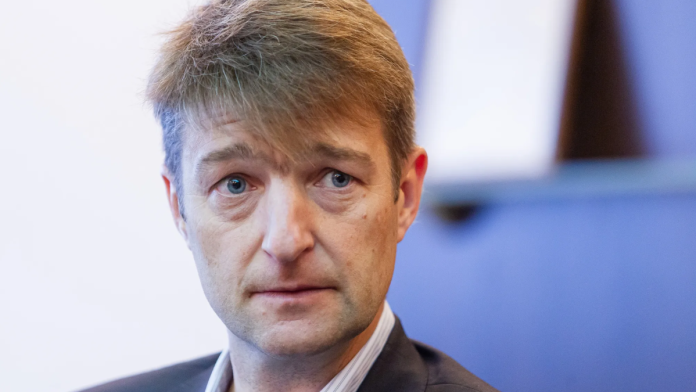Russian prosecutors have launched proceedings to seize control of KDV Group, one of Russia’s largest snack food companies, founded by billionaire Denis Shtengelov. The authorities allege that Shtengelov, who has lived in Australia for more than a decade, expressed support for Ukraine and transferred company profits abroad without authorization. The case has drawn attention because of the size of the company and the personal fortune involved.
Allegations Against Denis Shtengelov
Denis Shtengelov, 54, founded KDV Group in Siberia in the 1990s and gradually expanded it into a major producer of snack foods. Today, the company is valued at around 500 billion rubles (€5.1 billion). KDV’s products include biscuits, chocolate, chewing gum, and wafers, making it a household name across Russia. Bloomberg estimates that Shtengelov’s personal fortune exceeds €2.2 billion, placing him among the wealthiest figures in the country’s food industry.
In a 2022 Dutch media article, Shtengelov reportedly expressed regret over Russia’s invasion of Ukraine, which Russian prosecutors have cited as evidence of his political stance. According to local media reports, prosecutors allege that Shtengelov not only voiced support for Ukraine but also improperly shifted profits out of Russia. They further claim that his father, a businessman based in Ukraine’s Zaporizhzhia region, contributed to Kyiv’s defense fund and helped establish a paramilitary unit. These allegations form the basis of the state’s effort to seize control of KDV Group.
Sanctions without teeth: Canada targets Russia, Iran, and North Korea but enforcement collapses
Legal Actions and Company Response
A Moscow court is scheduled to hear the case later this month to determine whether authorities can proceed with the takeover of KDV Group. Some reports suggest that parts of the company’s assets have already been frozen, although details about which specific holdings are affected remain limited. Authorities have also reportedly restricted transactions involving property and shares across more than 50 companies within the KDV Group network.
In response, KDV Group stated that it continues to operate normally. The company highlighted that it has paid €140 million in taxes over the past three years and invested heavily in maintaining Russian factories and supporting local jobs. “Our team sincerely hopes for a fair and balanced resolution of the current situation,” the company said in a public statement, emphasizing its ongoing commitment to business operations and employment.
India-US trade talks resume after steep tariffs linked to Russian oil purchases
Broader Context of Asset Seizures
The move against KDV Group is part of a broader trend of asset seizures in Russia since the country’s invasion of Ukraine. Lawyers at Moscow’s Nektorov, Saveliev & Partners estimate that Russian authorities have confiscated property worth approximately €40 billion since 2022, with the value of seized assets tripling in the past year. This includes properties, companies, and other major holdings.
KDV Group is among the most valuable nationalizations in this wave, with prosecutors placing the company’s worth at 500 billion rubles. Observers note that the Russian government has increasingly used legal measures to target wealthy individuals and businesses, particularly those perceived to have ties or sympathies with Ukraine. This trend has intensified scrutiny of companies whose leaders reside abroad or have publicly expressed political opinions that conflict with state positions.
The case has drawn attention not only for its financial implications but also because it reflects how the Russian authorities are handling high-profile business figures with international connections. It remains one of the most prominent examples of state intervention in private business in recent years, highlighting the intersection of politics, economics, and international relations in contemporary Russia.


